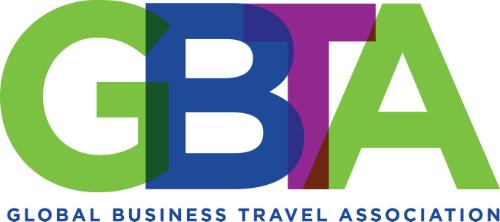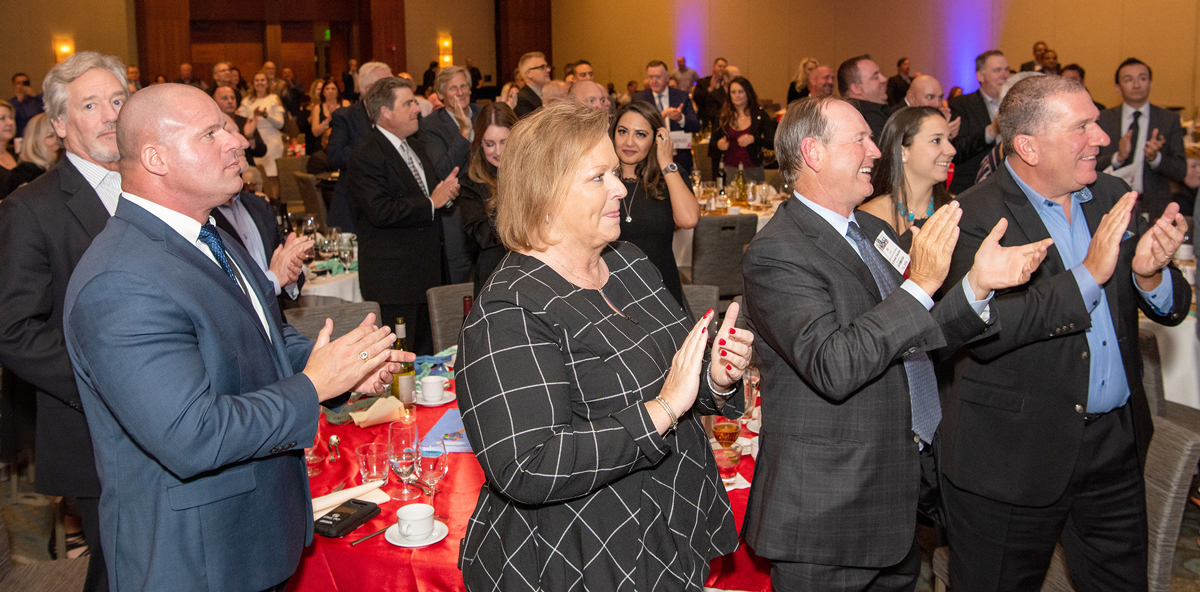- Details
- Category: Industry News

New variant developments, government restrictions, and international policy inconsistencies are currently hindering a more accelerated return for global business travel. However, the industry continues to reflect progress and optimism in its long-view expectations for 2022, according to the latest poll from the Global Business Travel Association (GBTA), which has been tracking the impact of COVID on the business community since 2020.
“Here at the start of a new year, the business travel industry and business travelers continue to face a dynamically changing landscape due to Omicron. One comment received from a poll respondent readily sums it up: ‘Uncertainty is a huge wet blanket on [business] travel,” said GBTA CEO Suzanne Neufang.
Despite these new challenges, the poll found positive signs as industry professionals continue to be optimistic for the long-term outlook of global business travel. The poll was conducted during the month of January 2022.
- OPTIMISM FOR THE LONG HAUL. Three in four travel managers expect business travel volume at their company will be much (17 percent) or somewhat (58 percent) higher in 2022 than it was in 2021. Another one in ten (12 percent) expect business travel to remain about the same as 2021, but few (5 percent) expect it to be lower.
Among travel suppliers and travel management companies (TMCs), three in four expect their company’s revenue in 2022 from business travel to be much (25 percent) or somewhat (51 percent) higher compared to 2021. An additional one in ten (13 percent) suppliers and TMCs expect their company’s revenue to remain about the same as 2021.
- COMPANY TRAVEL CANCELLATION DECREASES. Poll results show a decline in the percentage of companies that continue to suspend or cancel business travel. Sixty-eight percent of GBTA member companies have not yet opened international travel, compared to 79 percent in the October 2021 GBTA poll, and 29 percent have not opened domestic business travel versus 38 percent in October. Fewer than four in ten (38 percent versus 48 percent in October) of respondents report their company has suspended or canceled all or most business travel regardless of location.
- CURRENT BUSINESS IMPACTS. Six in ten (60 percent) suppliers/TMCs report their bookings from corporate clients decreased from the month prior. One in five (21 percent) characterize their bookings from corporate customers as having increased, but another one in five (19 percent) report their bookings remained the same.
Most suppliers and TMCs surveyed are concerned about the impact of Omicron on their company’s revenue derived from business travel, with seven in ten reporting it will likely have a very negative (32 percent) or moderately negative (38 percent) impact. An additional one in four say it will have either a slightly negative (20 percent) or no impact (3 percent) on revenue.
- COMPARING VARIANTS. When asked to compare Omicron and Delta variant concerns, respondents were more positive but still divided. Two in five report they are either less worried (43 percent) about Omicron or are equally concerned (45 percent). Only one in ten (13 percent) say they are more worried about Omicron.
- COMPANY GUIDANCE LARGELY UNCHANGED. Relatively few companies have introduced new travel restrictions due to the Omicron variant. Only one in four (27 percent) travel managers/procurement officers report their company has introduced new travel restrictions or requirements, whereas two-thirds (67 percent) report their company has not. More than half (52 percent) reported their company is unlikely to do so.
Some travel barriers named included company policies restricting employees from traveling (24 percent), employee unwillingness/reluctance to travel (9 percent), offices not being fully open (9 percent), and travel budget freeze or cost savings (6 percent).
- HURDLES CONTINUE FOR INTERNATIONAL TRAVEL. When asked to name barriers specifically to international business travel, respondents said policy uncertainty (72 percent), strict requirements on international visitors (69 percent), policy inconsistencies across different countries (64 percent), and required documentation and paperwork (45 percent).
- GETTING BACK OUT THERE. Despite Omicron, most travel managers feel employees are willing to travel, with two in three (64 percent) noting that their employees are willing or very willing to travel for business. This was down, however, from 78 percent in the October GBTA poll.
The full poll results, including previous polls, can be viewed here.
Visit gbta.org for more information.
[01.20.22]
- Details
- Category: Industry News

Chauffeur Driven and the National Limousine Association (NLA) announced last week that the Driven By Excellence Awards are now accepting nominations—but don’t delay because submissions will only be accepted through February 4. The Awards will be presented on Tuesday, March 29 at our Awards Dinner & Charity Event during the CD/NLA Show at the Paris Hotel in Las Vegas this March 27-30.
Some of the categories are new to truly reflect what the industry has faced over the past two years, so why not make this your year to shine? Have you or your team made an impact on the lives of others through community service or charitable contributions (time, vehicles, or money)? Has one or more of your chauffeurs gone above and beyond the call of duty to deliver exemplary service, or to help those affected by COVID? Have you or your company shown resiliency to overcome the extreme challenges we have all faced, or even bounced back stronger than you were?

Prove it! Your nomination is an opportunity to be recognized for those efforts, so click this link to tell us your powerful story. Operators of ALL sizes and locations are welcome to complete a nomination, and supporting documents are strongly encouraged.
Click here for more details about the categories.
If you haven’t registered for the show, now is the time. Our early-bird rate expires soon, so take advantage of the opportunity to save $70 (NLA members can save even more). Our exclusive room block rate at the Paris Las Vegas Hotel is $159/night. This block will fill up, so book your room today.
Visit cdnlavegas.com for more information.
[01.18.21]
- Details
- Category: Industry News
As business travel resumes amid an ongoing pandemic, keeping connected with business travelers has taken on renewed urgency for companies and their travel managers. This is the topic tackled in a recent survey, “No Reservations: Travel Program Communications from the US Business Traveler’s Perspective,” conducted by the Global Business Travel Association (GBTA) and made possible by Dinova. The survey examines how travel programs communicate versus how US business travelers want them to communicate with them, in the COVID era and beyond.

“As we continue to move through the pandemic, communication and real-time information for business travelers has never been more important, even for the most experienced road warriors. Corporate travel managers are finding themselves taking on an even more vital role as messengers and managers of change when it comes to keeping their employee travelers informed and safe,” said GBTA CEO Suzanne Neufang.
 GBTA CEO Suzanne Neufang
GBTA CEO Suzanne Neufang
“Travel policies for enterprises have traditionally been pretty static. They are typically communicated during employee onboarding and maybe again in an annual reminder to employees. However, COVID has completely changed that cadence. Companies must now constantly adjust their travel policies based on COVID government policies, variants, vaccine rates, and regional differences to ensure that their employees are safe,” said Dinova CEO Alison Galik. “The research shows that companies may be doing a good job managing these policies, but there is a lot of room for improvement when it comes to making sure their employees understand the latest changes. We believe there is a big opportunity to address this by offering more information about local COVID requirements and through leveraging mobile channels.”
The current role of a travel manager continues across traditional areas like meal per diems and expense report deadlines for their business travelers, but now they are also more critically tasked with continuously communicating special safety updates and travel policy changes and processes because of the pandemic.
Here are survey highlights on what business travelers want now:
- Some business travelers need more info. Most business travelers already feel they have enough information about various COVID-related travel changes. However, a fairly significant minority need more information. If they were to take a work trip in the next six months. For example, 46 percent said they would need at least some additional information about country-specific entry/quarantine requirements.
- Supplier safety. An overwhelming majority of business travelers said it is “important” or “very important” to learn about the COVID-related safety measures of hotels (94 percent), airlines (93 percent), airports (92 percent), restaurants (86 percent), car rental companies (84 percent), and ride-share/taxi companies (82 percent). These can include cleaning and sanitation efforts, and mask and vaccine requirements for staff and customers.
In addition to COVID-related communication, the study also explored business traveler communication preferences in general. Despite the availability of new communication channels and platforms, business travelers still prefer tried and true communication channels.
- Email is still king. Business travelers overwhelmingly want their company to use email to share information about travel policies and travel-related resources. Four in five (81 percent) include email as one of the top five communication methods they want their company to use (out of 13 tested), which is by far higher than the share for any other method.
- Internal collaboration platforms gain traction, but lag behind the intranet: Companies widely use internal collaboration platforms—such as Slack and Microsoft Teams—to facilitate collaboration between colleagues. However, these are not widely used for travel program communication.
- Getting more mobile. Despite recent progress, travel programs largely do not use mobile-first communication methods. Or if they do use these methods, business travelers might be unaware. Only about one-third of business travelers (36 percent) say their company communicates about travel via text messaging and only about one-quarter (21 percent) say it communicates via push notifications through a mobile app.
- Send me a text. Business travelers prefer text messaging over push notifications. Half of business travelers (51 percent) include text messaging as one of the top five methods they want their company to use to communicate about travel. This compares to only 23 percent who include push notifications through a mobile app as one of the top methods.
- Bite-sized pieces. Most companies have a formal, written travel policy. But are they using other methods to deliver information in more bite-sized pieces? Only 12 percent of respondents say their company uses on-demand videos to communicate about travel and only 9 percent say infographics are used. And business travelers indicated they prefer on-demand videos over infographics. One-quarter (25 percent) include on-demand videos as one of the top five methods that they want their company to use to communicate about travel. This compares to only 8 percent who include infographics as one of their top five methods.
GBTA members can access the complete survey report and accompanying infographic here.
Visit gbta.org for more information.
[01.18.22]

